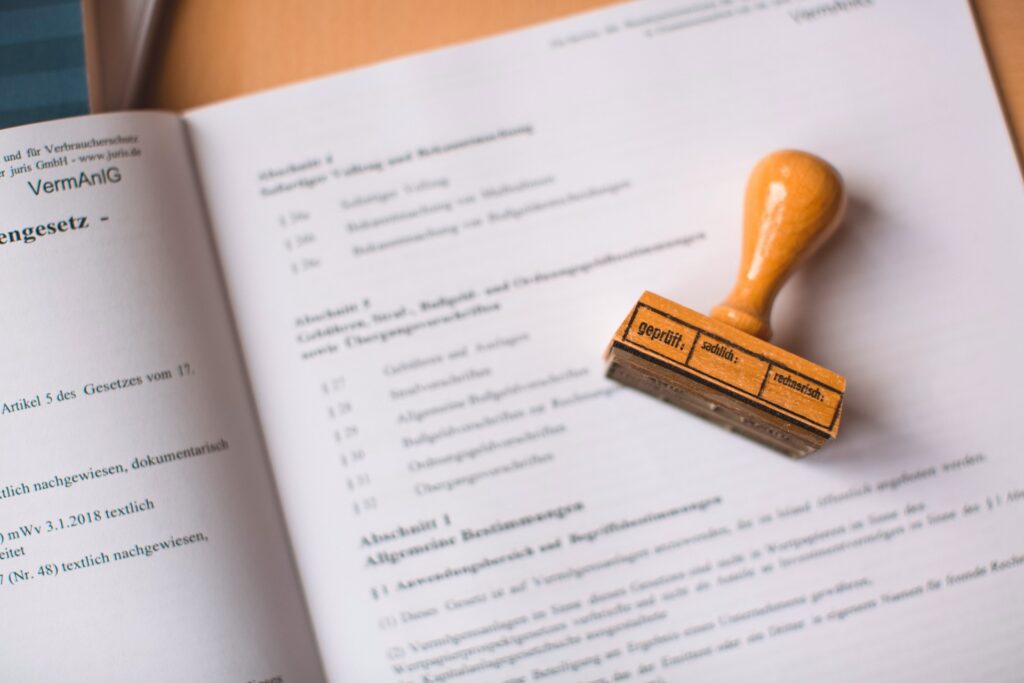Notary stamps play a crucial role in validating and legalizing various documents, ensuring their authenticity and legitimacy. But how long is a notary stamp good for?
Many individuals might wonder about that, for any number of reasons. In this article, we want to explore this question, explaining why the shelf life of notary seals is vital for both notaries public and those relying on notarized documents.
You may also like: Can a notary notarize for family? Understanding the guidelines

How long is a notary stamp good for?
The validity of a notary stamp is tied to the notary public’s commission, which is issued by the state government. In most jurisdictions, notary commissions last for a set term, commonly ranging from 2 to 10 years.
In truth, the notary stamp remains valid for as long as the notary public’s commission is in force. Once a notary commission expires, the notary must renew their commission to continue performing notarial acts.
State regulations dictate specific requirements for notary stamps, including the permissible dimensions, font sizes, and overall design. Adhering to these regulations is crucial for the validity of notarized documents, and failure to comply may result in the rejection of notarized paperwork.
It’s important for notaries to be aware of the expiration date of their commission and take the necessary steps to renew it on time. Renewal requirements may include submitting an application, paying fees, and, in some cases, completing additional training or education.
Additionally, the physical notary stamp itself may not have a predetermined expiration date, but it is crucial to ensure that the stamp adheres to current state regulations. If there are changes in notarial laws or requirements, notaries may need to update their stamps to remain in compliance.
To obtain accurate and up-to-date information on the validity period of notary commissions and any related regulations, notaries should refer to the laws and guidelines provided by their state’s notary public authority or commissioning agency.
The basics of notary stamps
A notary stamp, also known as a notary seal or embosser, is a tool used by notaries to certify and authenticate documents. This instrument typically includes the notary’s name, commission number and expiration date, and the jurisdiction in which they are authorized to operate.
Notary stamps may also feature the official emblem of the notary’s jurisdiction, emphasizing the authenticity of the document. The design and format of notary stamps can vary by region, as different jurisdictions have specific regulations regarding the appearance of notarial seals.
Notary stamps play a crucial role in the notarization process, serving as a visual confirmation of the notary public’s official status and authority. They help deter fraudulent activities and provide individuals with confidence in the validity of the documents they are dealing with.
The use of a notary stamp is often a legal requirement for certain transactions, such as real estate transactions, wills, and powers of attorney, among many others.
To maintain the integrity of the notary process, notaries public must adhere to ethical standards and follow their jurisdiction’s guidelines when using their notary stamp. These guidelines may include keeping the stamp secure, not using it for fraudulent purposes, and only notarizing documents in person with the signatories present to verify their identity.
At the end of the day, the responsibilities associated with notary stamps contribute to the overall reliability and trustworthiness of the notarial profession.

How to verify the expiration of a notary stamp
To ascertain the validity of a notary stamp, individuals can check the expiration date on the document bearing the notary’s seal.
This information is crucial, especially when dealing with legal or official documents, to ensure compliance with relevant regulations and avoid potential issues down the line.
In addition to checking the expiration date on the document, individuals can take further steps to verify the validity of a notary stamp. One essential measure is to confirm the notary’s commission status with the appropriate regulatory body or state government agency responsible for overseeing notary public services.
This can typically be done by accessing online databases or contacting the relevant authority to ensure that the notary’s commission is active and in good standing.
In some jurisdictions, notaries may be required to maintain a record book of their notarial acts. Requesting access to this record book, when permissible, can provide an additional layer of verification and information concerning its expiration date.
Don’t miss: Do you need a notary to sell a car?
Electronic notary stamps
Electronic notarization has become increasingly prevalent as technology continues to advance. In jurisdictions that permit electronic notarization, notaries have the option to use electronic notary stamps or digital signatures, providing a more streamlined and efficient notarization process.
One of the key advantages of electronic notarization is the convenience it offers to both notaries and individuals seeking notarized documents.
Electronic notaries can affix their digital signature or electronic notary stamp to documents, eliminating the need for physical stamps and paper. This leads to quicker turnaround times and reduced logistical challenges.
However, despite the shift to digital platforms, the fundamental principles of validity and integrity still govern electronic notarizations.
Notaries must comply with specific regulations and guidelines to ensure the legality and security of the electronic notarization process. These regulations often include the use of secure and approved electronic notary platforms that meet industry standards for encryption and data protection.

Get authentic notary stamps at Mobile Notary Orlando
Everything we discussed also applies to the mobile notary style of practice – one that keeps increasing in popularity due to its convenience.
That’s our expertise here at Mobile Notary Orlando. We serve the entire area of Orlando and Central Florida with trustworthy notary services 24 hours a day, 7 days a week! Wherever you are, all you need is to give us a call at (407) 768-4416, and we will be there to help you with any notary services you might need in no time.






